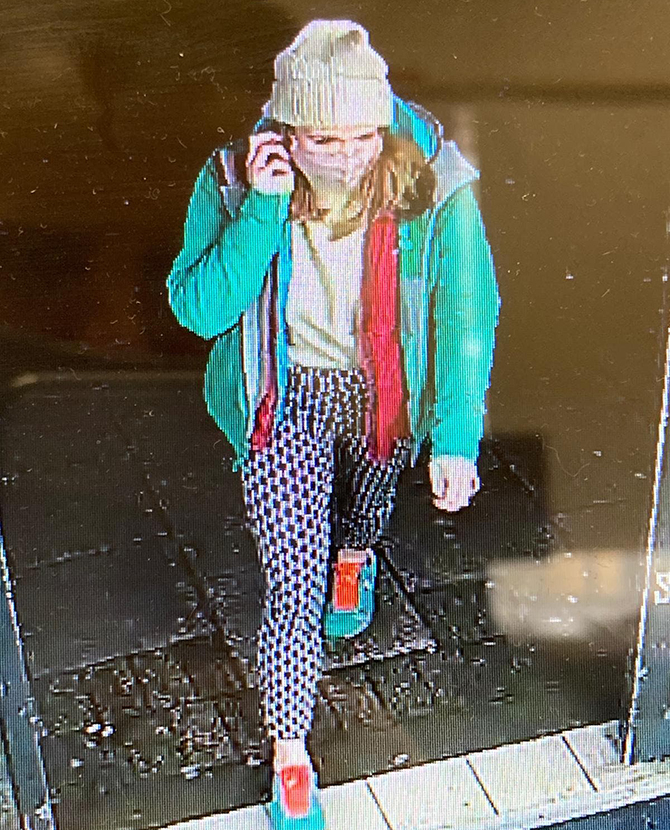“Text me when you get home”: All the things women do to feel safe—and what men can do to help

9pm on a Wednesday night, a young woman says goodbye to her friend and heads home. The next day, she’s nowhere to be found and uncontactable. It will take a week to locate her—as “human remains” in a forest, abandoned after being raped and murdered.
Her name was Sarah Everard and she lived in London, but she could have been any one of us. We may not walk home at night, but we walk to our car. We walk short distances from point A to B, to complete errands. Sometimes, we unfortunately have to take the risk of walking through an alley. And some of us jog or run alone for exercise.

Everard was 33. Around our age. She had walked home that night because taking public transport is currently discouraged in London, due to the high number of Covid-19 cases. Her case is still unfolding, with the suspect—an off-duty policeman—standing trial later this year.
For women, this will bring back memories of the “training” ingrained within us from the moment our breasts start to swell. It goes something like this:
View this post on Instagram
Sounds familiar?
This is not to say men don’t worry about personal safety. We know bad things can—and do—happen to anyone. Few men, though, will relate to having a “bro code” to check in on one another after a night out. They do not dread being catcalled. They’re not shamed for being violated. And, there is no risk of having to carry their perpetrator’s baby in their womb, go through childbirth, and then raise this child as a single mother or give it up for adoption because the law does not allow for an abortion.
A woman’s “honour” is at stake only because men made it so—the men who commit sexual crimes, the men who cast blame on victims, and the men who condition other women to think this way. Not all men, yes, but enough for women to carry around the burden of fear.
So let’s make it about all men. We’ll need everyone to be part of this conversation on creating safe spaces for women. Only then will the narrative switch from “what women can do to protect their body” to “what men can do to help women feel safer”. Signs of change are already afoot and it’s encouraging. Stuart Edwards, who says he lives five minutes from where Everard went missing, went on Twitter to ask: “Aside from giving as much space as possible on quieter streets and keeping face visible, is there anything else men can reasonably do to reduce the anxiety/spook factor?”
The suggestions he received apply not just to London but anywhere in the world, including Malaysia:
It sounds silly but being “noisy”. If you’re behind someone so they can’t see you but can audibly tell where you are is helpful. It also helps convey that you’re not trying to sneak up on someone. Maybe phone a friend and chat.
— JT and the NHS (@JTsNHS) March 9, 2021
This is an excellent question and I wish more men would ask it. Cross the street to avoid walking behind a woman. Give all women space. Never run close to them when jogging, esp in the dark – I’m endlessly astonished at how many men do this. Offer to walk female friends home.
— Fiona Sturges (@FionaSturges) March 10, 2021
Don’t enter an alley way, underpass, narrow pathway if a woman is already in it. Wait at your end until she has passed through safely. That realisation that a man is blocking your path is scary.
— Megan CollinsQuinlan (@MCollinsQuinlan) March 10, 2021
The fact that you’re aware & asking this is fantastic. Talk to other men about it, as many are oblivious. If you witness even low-key harassment, call it out. Everyone pretends not to notice the creeps making women uncomfortable. It only emboldens them & normalises the behaviour.
— Rebecca Vincent (@rebecca_vincent) March 10, 2021
On Instagram, author and artist Natalie Byrne also shared suggestions on what society can do, instead of putting the onus on women to modify their behaviour, looks and lifestyle:
View this post on Instagram
Tangible change begins with a switch in mindset. To start, share this with the men in your life and add to the conversation with your own suggestions. To the men who care and make an effort, thank you:
| SHARE THE STORY | |
| Explore More |



